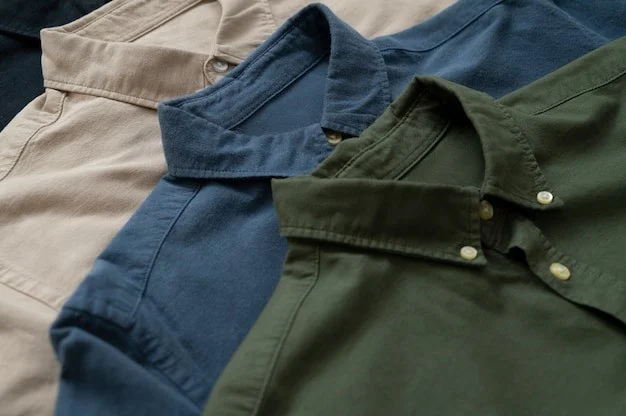
A top-notch custom clothing supplier could be the difference between your business flourishing or floundering. In the diverse world of custom apparel—be it luxury, corporate, or specialized—quality and innovation are key. Success in this field relies on quality, innovation, and personalization. An experienced manufacturer can give life to your startup, helping your brand stand out in a competitive market.
With the right supplier, production becomes more efficient, lowering costs and enhancing your brand's reputation. This post will help you choose the best manufacturer to improve your production and strengthen your business.
With so many custom apparel suppliers out there, how do you choose the best one? Let's break down the essential things to consider for a perfect partnership.
Custom clothing requires high-quality fabric. Choose suppliers that have durable fabrics and a reliable method of production. For example, a supplier of premium cotton or a moisture-wicking polyester guarantees that the garments are durable and will retain their look. Ask if they offer samples to assess the fabric and print quality before bulk purchase.
One of the important criteria is the ability of a supplier to adapt to the needs of the customer. Look for those who use multiple printing methods, including screen printing, embroidery, and heat transfer. Make sure that they can handle various design densities and shades. A supplier should also provide choices for the labels and tags to be used in the production process to match the company's identity.
Compare the prices of the different suppliers, not only the unit price but also the extra charges associated with the suppliers. A few of the wholesale custom apparel suppliers may give special offers, such as discounted prices for a certain quantity of products or a wholesale purchase. Learn how they bill their clients if there are any additional costs, such as setup or artwork modification fees.

Timely delivery makes a partnership between you and the supplier iron-clad. Suppliers should give specific lead time for the production and delivery of the product. For instance, you may require apparel for an event; a supplier who delivers products within the shortest time possible will help you get your products in time. Inquire about the turnaround time when placing an order if they have an option for rush services.
As a startup, you have to be certain about your requirements. This is mainly because you will not have a large demand in the initial stages. If your minimum order quantity is higher than it should be, you will just be stocking up on inventory, and your inventory will not be moving out of your warehouses. Suppliers with low MOQs are ideal for smaller businesses or those testing new designs. This is why, when negotiating your partnership with your supplier, be very sure to get the right minimum order quantity.

Innovation in apparel can set your brand apart. Look for suppliers that embrace new technologies and trends, such as sustainable fabrics or advanced printing techniques. A supplier focused on innovation can offer unique products and keep your designs fresh and competitive in the market.
Starting small is great, but how do you grow? Building the right supplier relationships can be the secret sauce. Learn how to scale your startup effectively by working smarter with suppliers.
Building trust and communication, startups guarantee the quality of products and their timely delivery. Startups plan well if they engage with suppliers frequently so that they know their strengths and weaknesses. Setting up weekly meetings or check-ins to resolve any problems that may arise and foster a positive team culture. Also, the practice of giving constructive feedback and criticism helps in enhancing the quality of the work and the partnership.
The fact that you are able to adapt to the changes in the market is what enables your startup to grow. Your supplier can help by providing information regarding the current trends and aid in changing the product mix. For example, if the market trend is shifting to wearing eco-friendly apparel, a responsive supplier can easily shift to sustainable materials. Being flexible with the help of your supplier can help your startup remain competitive and relevant.
Working with your supplier on new product lines is the way to go. Discussing your ideas with them leads to better product development. For instance, if you want to introduce a new range of activewear, your supplier's knowledge can help you decide on the materials and design of the clothing line. Thus, the concept of collaboration can help expand the range of your products and satisfy new market demands.
Strong supplier relationships are the lifeblood of smooth operations and success. Are you doing enough to nurture them? Uncover how to foster reliability, communication, and trust for a winning collaboration.

To have a good relationship with your supplier is synonymous with having good communication. Schedule regular meetings to review the progress, changes and any issues that may arise. For example, a monthly meeting can serve to discuss production schedules and the changes that may be required. Hence, constant communication helps both parties to understand each other's expectations in the event that any complications arise.
Anticipate potential problems before getting worse. It is better to fix a problem as soon as you identify it rather than let it compound and become worse. For instance, if there is a delay in the production process, then inform the supplier immediately and consider the possible course of action. This ensures that you avoid any hitches, showing your supplier that you are committed to a smooth process.
Offer your feedback on the products and services in a timely and constructive manner. Quality and delivery should be discussed after every order so that you can be in a position to know what went wrong or what you need to adjust. Feedback can be given immediately, and this enables your supplier to make changes where necessary to meet your requirements. For instance, if you find out that the colors of a batch do not meet the color standards that you want, informing your supplier about this makes them change their ways of producing the next batch.
It is not simply about the short-term payoff but also about the long-term development. It means that by choosing wisely today, you create a foundation for a better tomorrow. Every decision made in business or personal life contributes towards the path being taken. Consider options, evaluate the pros and cons, and think about how they will fit into your plans. One of the considerations to make is Kutetailor.
Kutetailor stands out as a professional provider of high-quality custom men's wear and women’s. Our digital platform, made to measure suits online, supports startups from ordering to business management. By offering seamless solutions and top-notch apparel, Kutetailor ensures that you're well-equipped to make your business thrive. With our help, you can confidently build a strong brand and achieve lasting success.
A: Look for suppliers who have certifications like ISO 9001 or OEKO-TEX. Such certifications refer to quality management and environmentally friendly processes. They make sure that the supplier is up to the standard in the production of quality and safe products. By confirming these certifications, you can be sure that your apparel will be made with the right standards.
A: Key Performance Indicators are the on-time delivery rates, accuracy of orders, quality control measures, and customer service responses. The above KPIs ensure monitoring of the supplier's compliance with the set timelines, quality, and communication.
A: Startups should seek suppliers who embrace advanced technology in operations, such as digital printing, laser cutting, and automatic embroidery machines. This is due to the fact that advanced technology leads to accurate and effective production, which results in high-quality customization and consistent results.